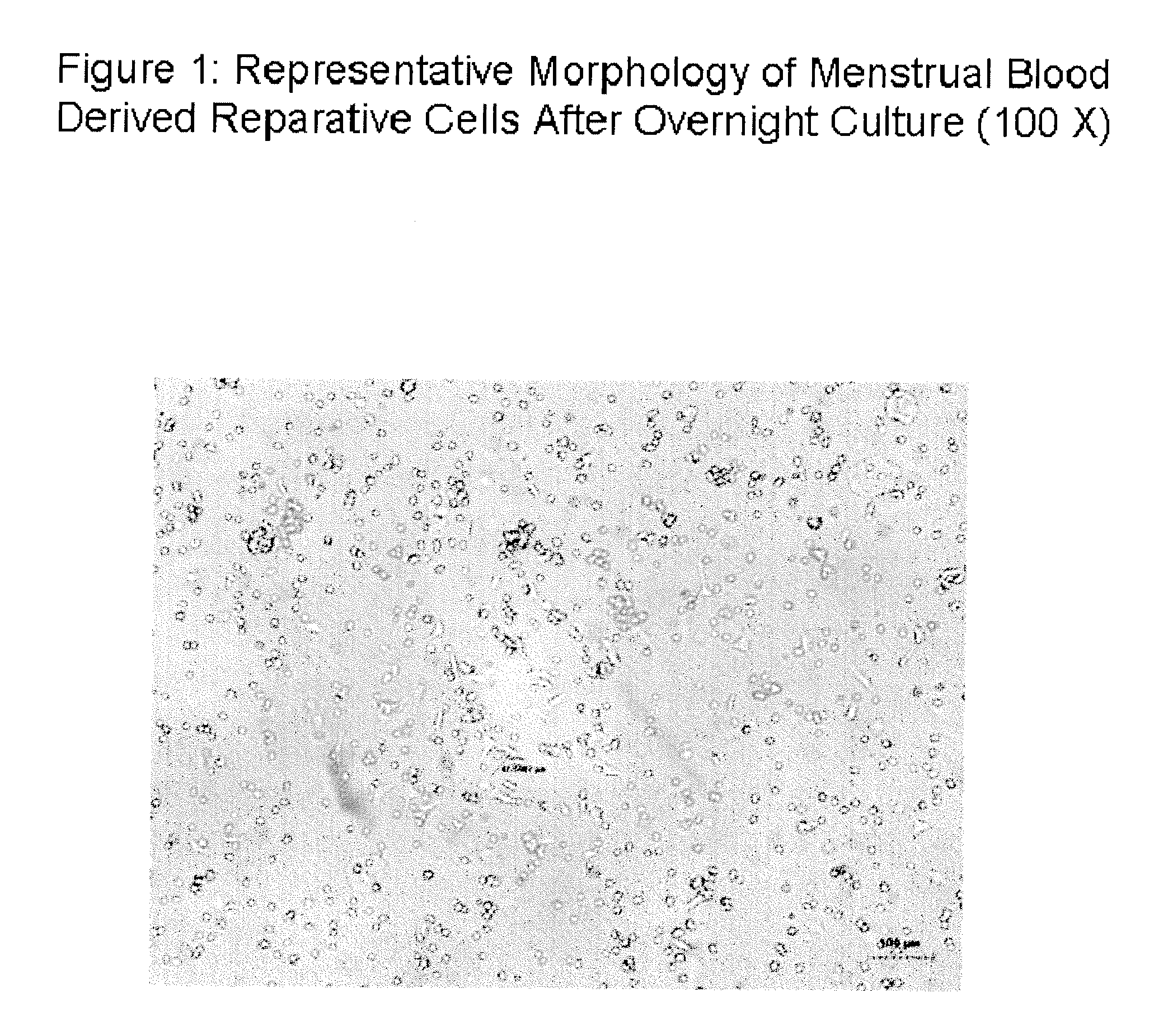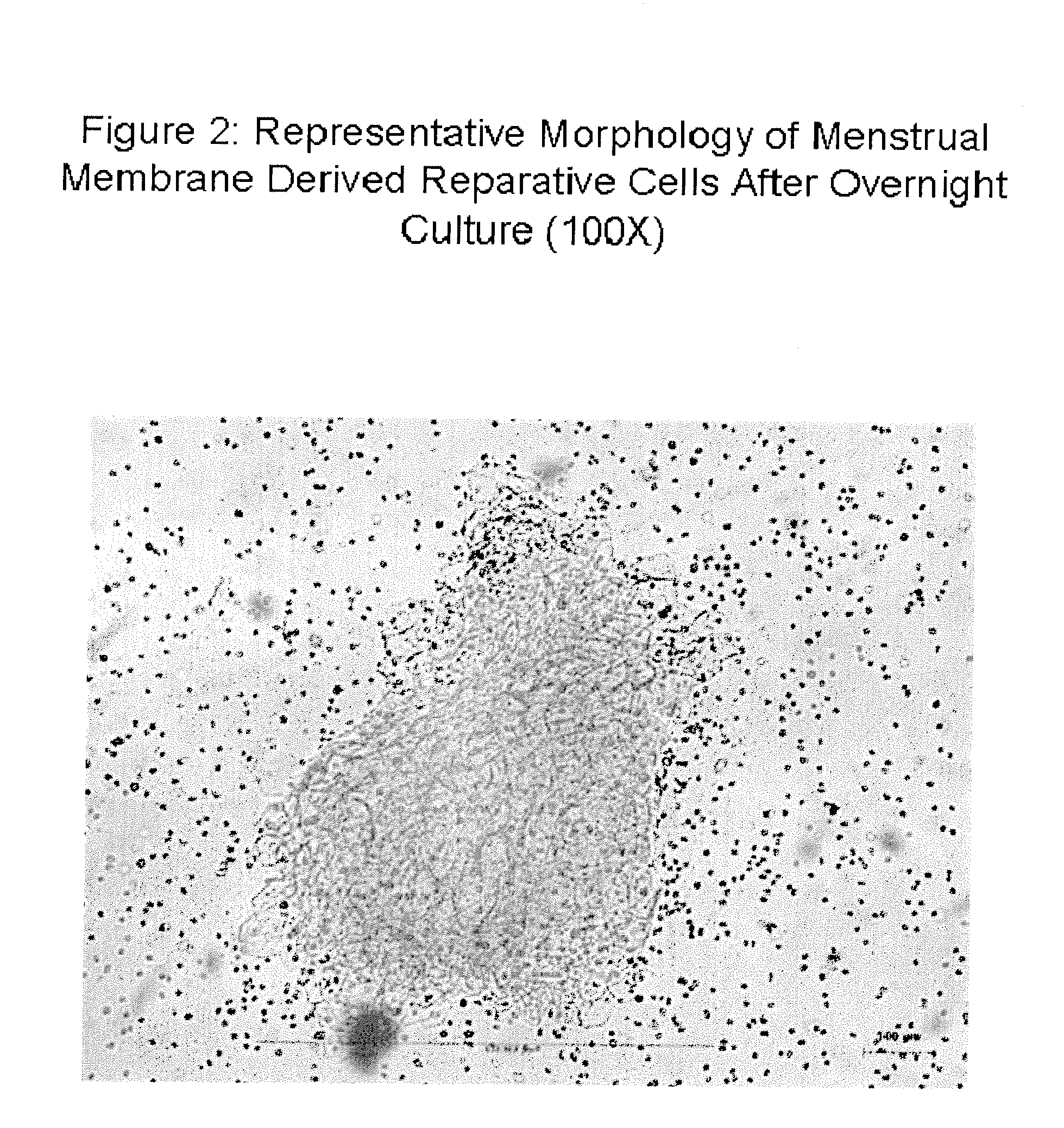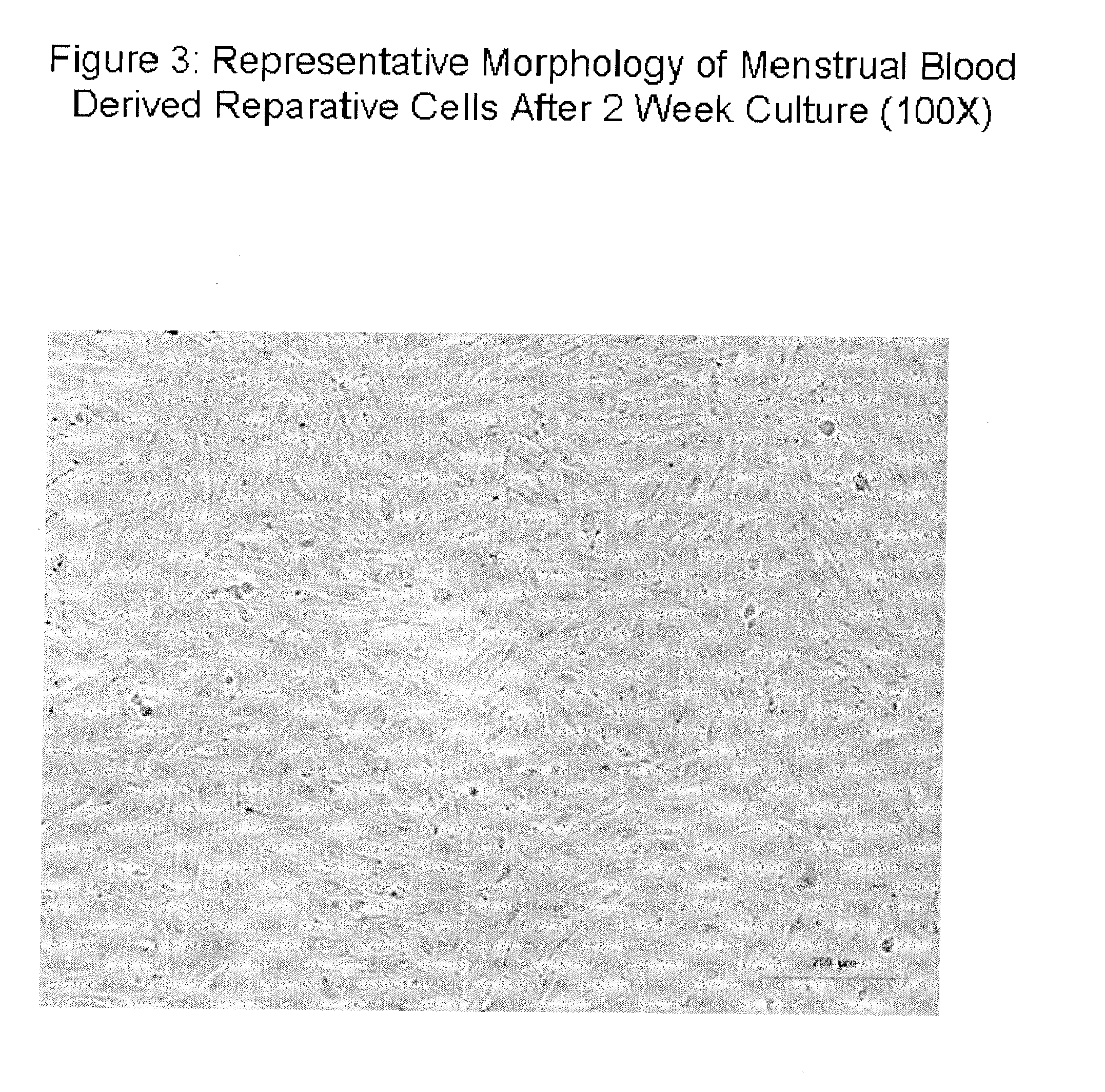Endometrial stem cells and methods of making and using same
a technology of endometrial stem cells and stem cells, which is applied in the direction of drug compositions, peptide/protein ingredients, extracellular fluid disorder, etc., can solve the problems of invasive extraction, limited cell types, and inability to express embryonic stem cells causing teratomas, etc., and achieves the effect of rapid cell division
- Summary
- Abstract
- Description
- Claims
- Application Information
AI Technical Summary
Benefits of technology
Problems solved by technology
Method used
Image
Examples
example 1
[0154]This example describes isolation of cells from menstrual blood.
[0155]5 ml of menstrual blood was collected from female subjects after informed consent the second day after menstrual blood flow initiated. Collection was performed in a sterile urine cup and then transferred into a 50 ml conical tube (Corning) with 0.2 ml amphotericin B (Sigma-Aldrich, St Louis, Mo.), 0.2 ml penicillin / streptomycin (Sigma 50 ug / nl) and 0.1 ml EDTA-Na2 (Sigma) in a total volume of 40 ml phosphate buffered saline (PBS). Cells were washed by centrifugation at 600 g for 10 minutes, which produced a cell pellet at the bottom of the conical tube. Under sterile conditions supernatant was decanted and the cell pellet was gentle dissociated by tapping until the pellet appeared liquid. The pellet was resuspended in 25 ml of PBS and gently mixed so as to produce a uniform mixture of cells in PBS. In order to purify mononuclear cells, 15 ml of Ficoll-Paque (Fisher Scientific, Portsmouth N.H.) density gradien...
example 2
[0156]This example describes culture of menstrual derived mononuclear cells.
[0157]1×106 menstrual blood derived mononuclear cells were placed in a 15 ml sterile Petri dish (Corning, Acton, Mass.) in 10 ml complete DMEM medium. DMEM is a variation of MEM, and contains approximately four times as much of the vitamins and amino acids present in MEM and two to four times as much glucose as MEM. Other tissue culture media may be used such as Roswell Park Memorial Institute Media (RPMI-1640) which is available from Sigma (Product #R6504), Basal Medium Eagle (BME), Ham's, and Minimum Essential Medium Eagle (MEM, or EMEM), which contains amino acids, salts (potassium chloride, magnesium sulfate, sodium chloride, and sodium dihydrogen phosphate), glucose and vitamins (folic acid, nicotinamide, riboflavin, B-12). Cells were cultured overnight at 5% CO2 at 37 degrees Celsius in a fully humidified incubator. After overnight culture, cells were examined under an inverted light microscope. FIG. 1...
example 3
[0160]This example describes culture of menstrual derived membranes.
[0161]Collection of menstrual blood was performed as described in Example 1. Membranous materials were identified based on microscopic clump-like shapes after menstrual blood was diluted in 40 ml of PBS containing 0.2 ml amphotericin B (Sigma-Aldrich, St Louis, Mo.), 0.2 ml penicillin / streptomycin (Sigma 50 ug / nl) and 0.1 ml EDTA-Na2 (Sigma) in a total volume of 40 ml phosphate buffered saline (PBS). Membranous materials were extracted microscopically using a sterile pipette and placed in complete DMEM media overnight in a fully humidified incubator at 37 Celsius with 5% CO2. An 100× photograph after overnight culture is seen in FIG. 2.
[0162]Culture of the menstrual membranes for 48 hours revealed an adherent population attaching to the bottom of the tissue culture plate. Cells were trypsinized as described in Example 2 for menstrual blood derived cells, and passaged similarly. As observed in FIG. 4, the cells exhib...
PUM
| Property | Measurement | Unit |
|---|---|---|
| weight % | aaaaa | aaaaa |
| weight % | aaaaa | aaaaa |
| volume | aaaaa | aaaaa |
Abstract
Description
Claims
Application Information
 Login to View More
Login to View More - R&D
- Intellectual Property
- Life Sciences
- Materials
- Tech Scout
- Unparalleled Data Quality
- Higher Quality Content
- 60% Fewer Hallucinations
Browse by: Latest US Patents, China's latest patents, Technical Efficacy Thesaurus, Application Domain, Technology Topic, Popular Technical Reports.
© 2025 PatSnap. All rights reserved.Legal|Privacy policy|Modern Slavery Act Transparency Statement|Sitemap|About US| Contact US: help@patsnap.com



